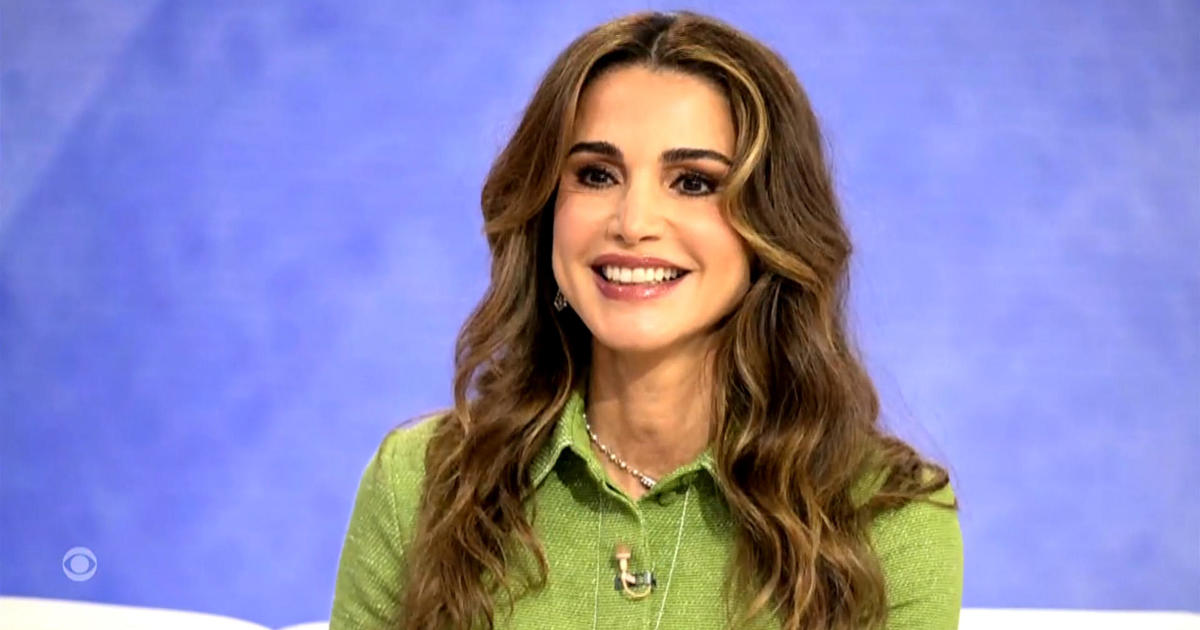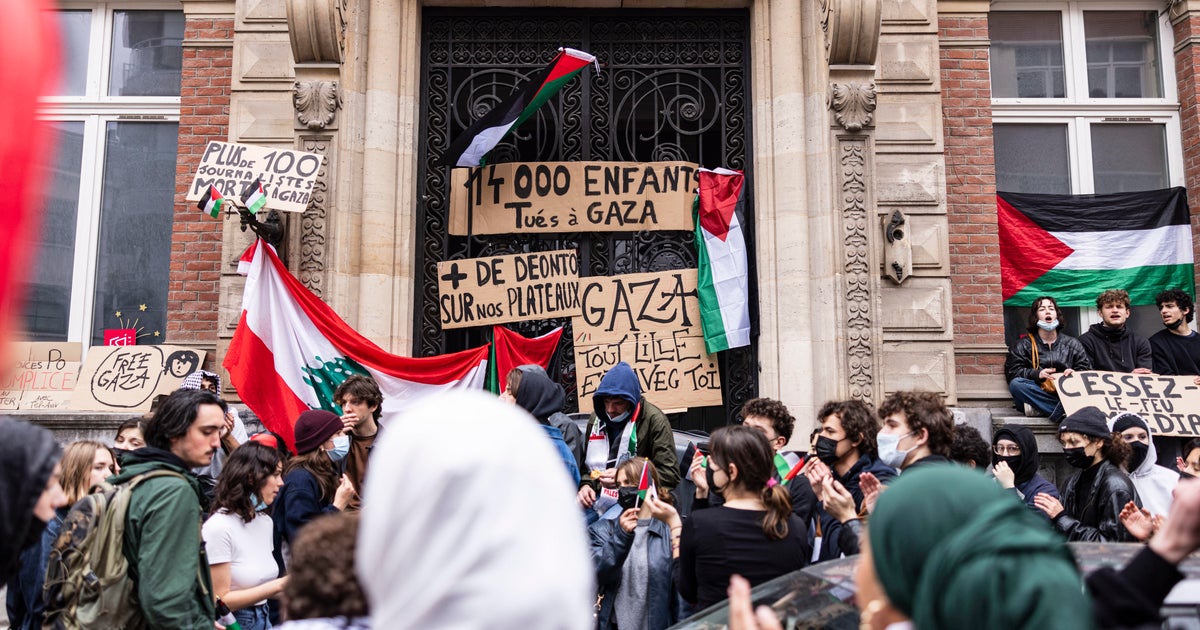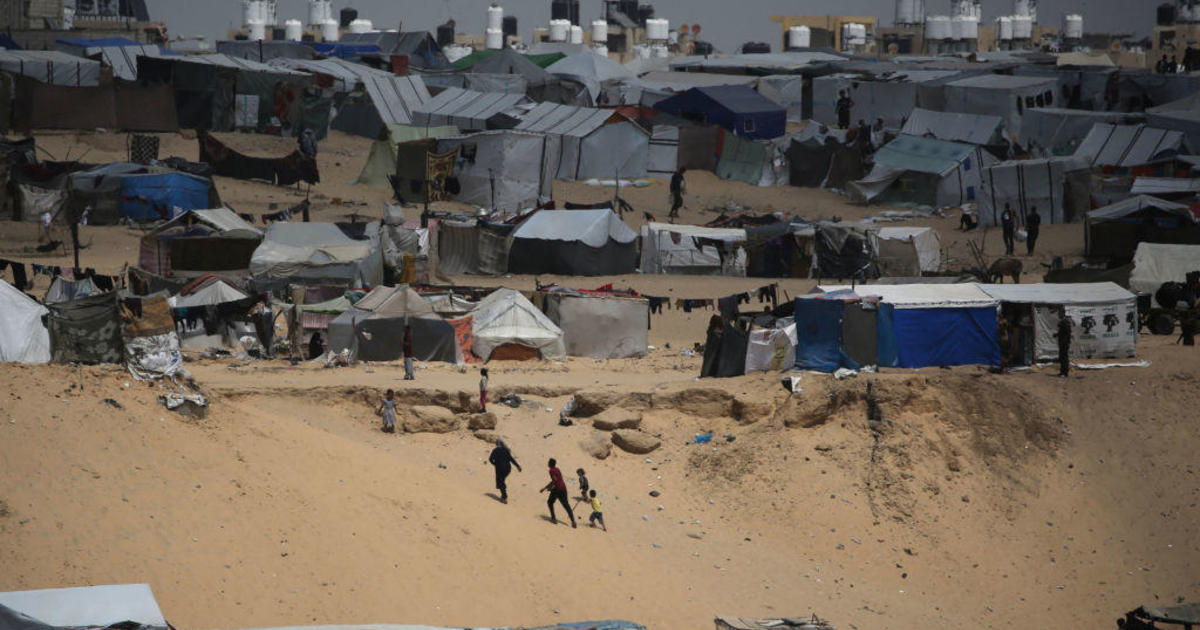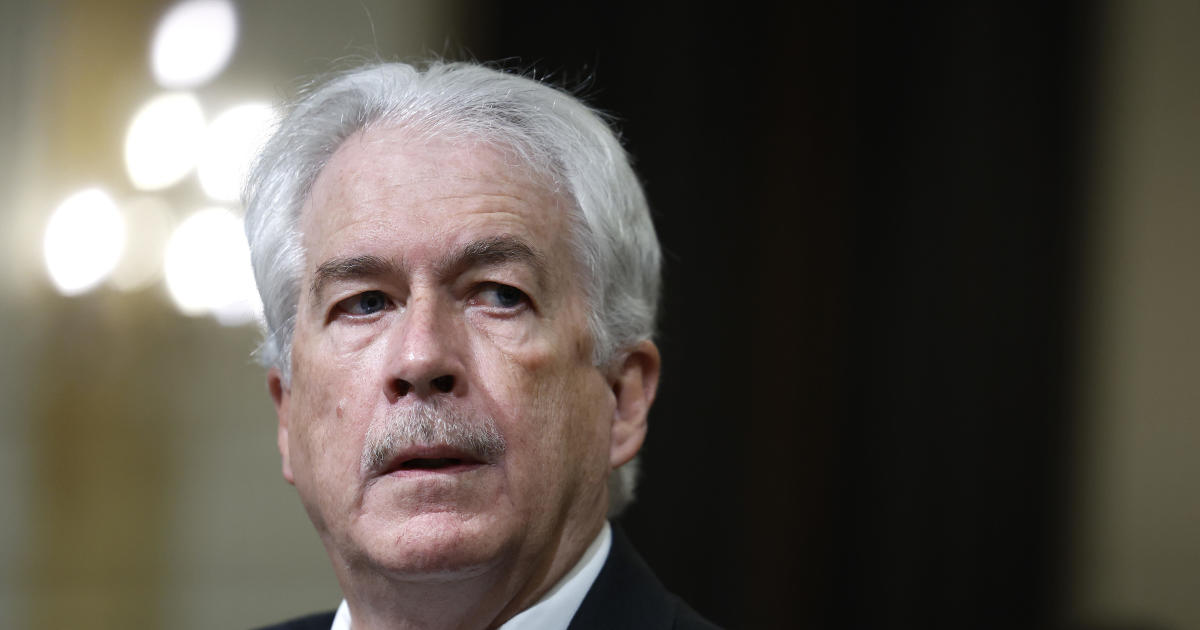Transcript: U.N. High Commissioner for Refugees Filippo Grandi on "Face the Nation," April 1, 2018
Filippo Grandi, the United Nations High Commissioner for Human Rights, is in charge of the U.N.'s response to refugee crises around the world. He joined us to discuss the crises in Burma and Bangladesh, Syria and the Democratic Republic of the Congo.
The following is a transcript of the interview with Grandi that aired Sunday, April 1, 2018, on "Face the Nation."
BRENNAN: We sat down recently with United Nations High Commissioner, Filippo Grandi. He is the U.N.'s top official on refugees, tasked with providing them protection, distributing aid and managing resettlement programs. His organization has identified over 65 million displaced people worldwide. We spoke with him about three major refugee crises: Muslims fleeing Burma and crossing into neighboring Bangladesh, Syrians trying to escape conflict inside that country and Congolese fleeing violence in the Democratic Republic of the Congo.
BRENNAN: We're in the midst of the worst refugee crisis since World War II. Do you have the resources you need?
GRANDI: Not enough. Not enough. And not only that but we need of course humanitarian resources to address the basic needs: food, medicines, shelter. Protection especially for the most vulnerable women, children. But we increasingly need with this protracted crisis, you know, the average stay of a refugee in a foreign country, these- these- these days is maybe 15 to 20 years, so you need to--
BRENNAN: Fifteen to 20 years in a refugee camp?
GRANDI: Yes, or-- in refugee camp or in refugee situations. This is the nature of the crisis today.
BRENNAN: Now in terms of political leadership the President has capped the number of refugees that the United States will resettle here on the U.S. mainland, at about 45,000 for 2018. Does that concern you to see those kind of caps?
GRANDI: We are discussing this matter with the U.S. and we hope that once this analysis of the vetting procedure is completed, once measures are taken to make it even more robust, although we think it's quite robust already, then we can talk about larger figures again.
BRENNAN: I want to ask you about some specific cases. In Burma, these are 700,000 people who flooded into Bangladesh which is itself one of the poorest countries in the world.
GRANDI: Not only poor, but, you know, I visited there a couple of times, the area of Bangladesh where they have flooded in is extremely exposed to- to climate phenomena like monsoon rains, like typhoons, like flooding. So it's a very fragile area from the environmental point of view.
BRENNAN: You see the images from that area and food scarcity. You see men clamoring for bags of rice, infants, babies dead in their mother's arms because of what they've fled just to get to these camps. Are you hearing any advocacy from the United States on this issue? I mean, who do you even meet with in the Trump administration?
GRANDI: Well the people in the State Department that are responsible for refugee assistance have been very active.
BRENNAN: And there's no one running that program right now because there hasn't been someone appointed.
GRANDI: But the- but the- the- the office, the- the- the professionals, the officials that are staffing the office have been working very hard on the response. You know it's not a very well-known population, it's not a very well-known cause, but I think there is growing sympathy and support worldwide and at least that can help in the response. But we need to find the solution. And that's the most difficult back in their country, back in Burma.
BRENNAN: In Syria, we're just past the seventh anniversary of that war. Is the refugee flow slowing down at all?
GRANDI: You know the refugee flow has, meaning people exiting Syria into neighboring countries, has slowed down awhile ago because the borders are practically closed and Europe having closed borders two years ago this has provoked a chain reaction. So--
BRENNAN: There's nowhere to run.
GRANDI: So for Syrians there's nowhere to run outside the country except for a few of them. We've seen, on the other hand, and because of that, a big increase in internal refugees.
BRENNAN: Diplomatically there's no solution to that in sight, but do you-- do you feel there is a global fatigue when it comes to donating or when it comes to support for these refugees?
GRANDI: There might be. It's also a matter of sheer numbers. I have to travel the world go to donor capitals and every time bring a new situation which requires funding but what can I do? I often say that we have become unable to make peace.
BRENNAN: You're going to political capitals, sort of door to door asking for help for all of these crises. How do you prioritize Africa? Where does that fall?
GRANDI: It's difficult because Africa is far away. You know Africa is the-- is the continent that is perhaps the furthest away from the rich countries. And in an era of mobility when refugees become visible when they come at the doorstep of rich countries, it's more difficult for people who don't get to that doorstep and remain refugees or displaced far away.
BRENNAN: They're not seen.
GRANDI: They're not seen, they're invisible. And Africa has never been at the center of the strategic interest of the big powers unfortunately. Although of course there are many important interests there as well. So it is more difficult to make the case for African refugees but I would argue that it should be equally compelling. I think it's a fundamental message that I'd like to leave behind for those who listen, those who watch, is remember that refugees are not a threat and should not be seen as a threat. Refugees are people that are fleeing from unimaginable threats.
BRENNAN: So that must frustrate you when you hear the president only speak about refugees in the context of a national security threat.
GRANDI: What I say does not mean that governments do not have a responsibility to ensure that population movements including refugees do not bring insecurity. This is a sovereign duty of any country. That's why we support vetting. We support controls but fundamentally if somebody is assessed as being a refugee he or she should be received, should be given that protection that this person has lost in his or her country and in countries like the United States should be given the opportunity to thrive. Like millions of refugees have done in the past few decades.
BRENNAN: But it's not easy to be resettled in the U.S.
GRANDI: Well it is still the largest resettlement program in the world. And like I said, once this issue of vetting has been clarified I hope that the figures can rise again.
BRENNAN: No promises yet, on that?
GRANDI: Ongoing discussion.
BRENNAN: We'll be back in a moment.



